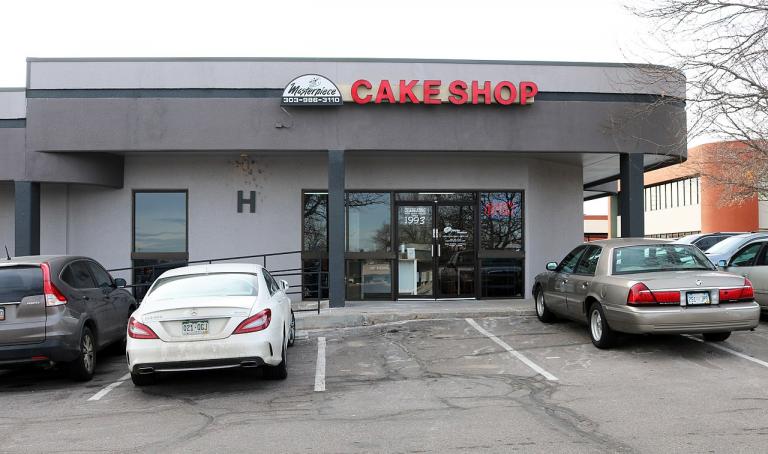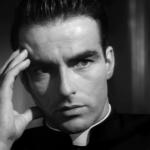The Supreme Court ruled in favor of Jack Phillips, the Christian baker in Colorado who refused to make a wedding cake for a same-sex ceremony. The decision turned on specific factors in the case, so it stopped short of definitively resolving the conflict between religious liberty and non-discrimination laws. Nevertheless, some important principles emerged.
Notice that this was no closely-divided, conservative vs. liberal decision but an overwhelming 7-2 consensus that even liberal justices agreed with. Only Justices Ginsberg and Sotomayor dissented. This was remarkable, since Mr. Phillips had lost every other hearing, court case, and appeal until he had his day in the Supreme Court.
Basically, the court ruled that the Colorado Civil Rights Commission was itself guilty of discrimination against religion! The court noted the commissioners’ comments that religion has always engaged in discrimination, including slavery and the Holocaust. (Wasn’t the Holocaust an example of religious discrimination against, you know, the Jews?) The commissioners also refused to hear several cases in which bakers refused to make cakes with messages that opposed gay marriage. The government must be neutral towards religion, the court ruled, which excludes such anti-religious bias.
The decision was written by Justice Anthony Kennedy, who also wrote the decision legalizing same-sex marriage nation-wide. Here is the main takeaway: “The laws and the Constitution can, and in some instances must, protect gay persons and gay couples in the exercise of their civil rights, but religious and philosophical objections to gay marriage are protected views and in some instances protected forms of expression.”
One might wish that the court had gone on to indicate how those two principles should be implemented and what should be done when they conflict. Courts will have to work that out as other cases are litigated, said the justices, meaning more traumatic and expensive legal actions. But still this principle will have to be followed: “religious and philosophical objections to gay marriage are protected views and in some instances protected forms of expression.”
So those who believe in the traditional definition of marriage have a right to their “views.” OK. So no one will face punishment for holding that position. Churches won’t be required to change their theologies of marriage. Individuals will not have to recant their opposition to same-sex marriage in order to receive public benefits.
And “in some instances,” their “expression” of these views is protected. But what are the “instances”? There is the rub. If a church “expresses” its opposition to gay marriage, will that be allowed? If the individual states his views about marriage being between a man and a woman, can he be denied employment?
For answers, we will have to wait until someone is denied a job for believing in traditional marriage, whereupon there will be a lawsuit, appeals, and probably another Supreme Court ruling.
Perhaps there are clues in Justice Kennedy’s decision. It’s worth reading. Here it is, with my bold and italics:
MASTERPIECE CAKESHOP, LTD., ET AL. v. COLORADO CIVIL RIGHTS COMMISSION ET AL.
Held: The Commission’s actions in this case violated the Free Exercise Clause. Pp. 9–18.
(a) The laws and the Constitution can, and in some instances must, protect gay persons and gay couples in the exercise of their civil rights, but religious and philosophical objections to gay marriage are protected views and in some instances protected forms of expression. See Obergefell v. Hodges, 576 U. S. ___, ___. While it is unexceptional 2 MASTERPIECE CAKESHOP, LTD. v. COLORADO CIVIL RIGHTS COMM’N Syllabus that Colorado law can protect gay persons in acquiring products and services on the same terms and conditions as are offered to other members of the public, the law must be applied in a manner that is neutral toward religion. To Phillips, his claim that using his artistic skills to make an expressive statement, a wedding endorsement in his own voice and of his own creation, has a significant First Amendment speech component and implicates his deep and sincere religious beliefs. His dilemma was understandable in 2012, which was before Colorado recognized the validity of gay marriages performed in the State and before this Court issued United States v. Windsor, 570 U. S. 744, or Obergefell. Given the State’s position at the time, there is some force to Phillips’ argument that he was not unreasonable in deeming his decision lawful. State law at the time also afforded storekeepers some latitude to decline to create specific messages they considered offensive. Indeed, while the instant enforcement proceedings were pending, the State Civil Rights Division concluded in at least three cases that a baker acted lawfully in declining to create cakes with decorations that demeaned gay persons or gay marriages. Phillips too was entitled to a neutral and respectful consideration of his claims in all the circumstances of the case. Pp. 9–12.
(b) That consideration was compromised, however, by the Commission’s treatment of Phillips’ case, which showed elements of a clear and impermissible hostility toward the sincere religious beliefs motivating his objection. As the record shows, some of the commissioners at the Commission’s formal, public hearings endorsed the view that religious beliefs cannot legitimately be carried into the public sphere or commercial domain, disparaged Phillips’ faith as despicable and characterized it as merely rhetorical, and compared his invocation of his sincerely held religious beliefs to defenses of slavery and the Holocaust. No commissioners objected to the comments. Nor were they mentioned in the later state-court ruling or disavowed in the briefs filed here. The comments thus cast doubt on the fairness and impartiality of the Commission’s adjudication of Phillips’ case. Another indication of hostility is the different treatment of Phillips’ case and the cases of other bakers with objections to anti-gay messages who prevailed before the Commission. The Commission ruled against Phillips in part on the theory that any message on the requested wedding cake would be attributed to the customer, not to the baker. Yet the Division did not address this point in any of the cases involving requests for cakes depicting anti-gay marriage symbolism. The Division also considered that each bakery was willing to sell other products to the prospective customers, but the Commission found Phillips’ willingness to do the same irrelevant. The State Court of Cite as: 584 U. S. ____ (2018) 3 Syllabus Appeals’ brief discussion of this disparity of treatment does not answer Phillips’ concern that the State’s practice was to disfavor the religious basis of his objection. Pp. 12–16.
(c) For these reasons, the Commission’s treatment of Phillips’ case violated the State’s duty under the First Amendment not to base laws or regulations on hostility to a religion or religious viewpoint. The government, consistent with the Constitution’s guarantee of free exercise, cannot impose regulations that are hostile to the religious beliefs of affected citizens and cannot act in a manner that passes judgment upon or presupposes the illegitimacy of religious beliefs and practices. Church of Lukumi Babalu Aye, Inc. v. Hialeah, 508 U. S. 520. Factors relevant to the assessment of governmental neutrality include “the historical background of the decision under challenge, the specific series of events leading to the enactment or official policy in question, and the legislative or administrative history, including contemporaneous statements made by members of the decisionmaking body.” Id., at 540. In view of these factors, the record here demonstrates that the Commission’s consideration of Phillips’ case was neither tolerant nor respectful of his religious beliefs. The Commission gave “every appearance,” id., at 545, of adjudicating his religious objection based on a negative normative “evaluation of the particular justification” for his objection and the religious grounds for it, id., at 537, but government has no role in expressing or even suggesting whether the religious ground for Phillips’ conscience-based objection is legitimate or illegitimate. The inference here is thus that Phillips’ religious objection was not considered with the neutrality required by the Free Exercise Clause. The State’s interest could have been weighed against Phillips’ sincere religious objections in a way consistent with the requisite religious neutrality that must be strictly observed. But the official expressions of hostility to religion in some of the commissioners’ comments were inconsistent with that requirement, and the Commission’s disparate consideration of Phillips’ case compared to the cases of the other bakers suggests the same.
Though this decision doesn’t resolve all of the issues or give clear guidance for the future, it remains a victory for religious liberty.
The government “cannot impose regulations that are hostile to the religious beliefs of affected citizens and cannot act in a manner that passes judgment upon or presupposes the illegitimacy of religious beliefs and practices.” The government “has no role in expressing or even suggesting whether the religious ground for Phillips’ conscience-based objection is legitimate or illegitimate.”
Those statements put important limitations on the government and offers significant protection for religious convictions.
What about the discrimination issue? Would the baker sell a gay person a donut? Or a loaf of bread? Or an already-made generic wedding cake? If so, I don’t think he would be discriminating against gay people. This would be in contrast to the practice of some businesses back in the Jim Crow era of not letting black people into the shop at all. But willingness to do business with gay people (as Jack Phillips said he was willing to do in selling them a generic cake) is not the same as requiring the baker to express his approval of the union by making an artistic creation with a messsage on the order of “God bless your marriage!”
How could such distinctions be written into law or policy?
Photo of Jack Phillips’ Masterpiece Cake Shop, Lakewood, Colorado, By Jeffrey Beall – Own work, CC BY 4.0, https://commons.wikimedia.org/w/index.php?curid=65353865













